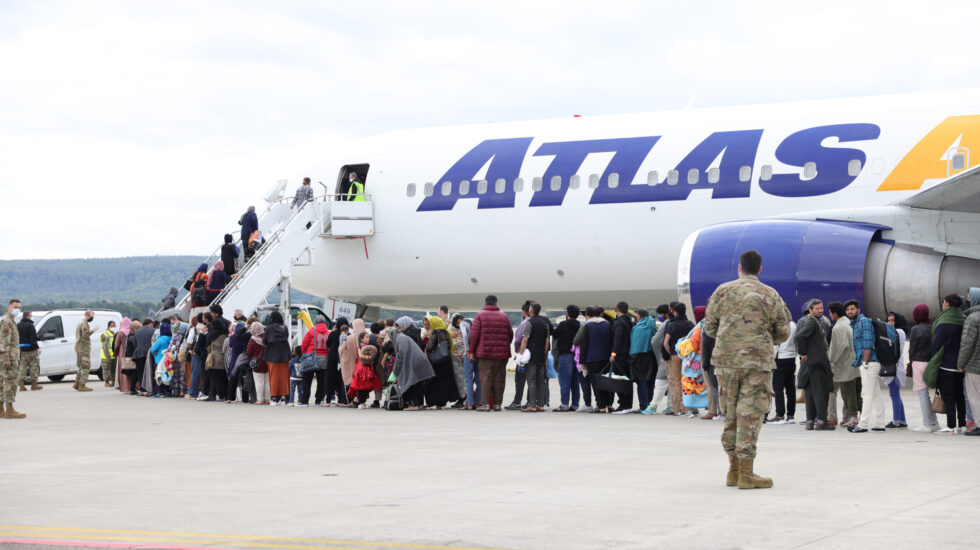The Biden administration has begun finding homes for 37,000 of the refugees the U.S. evacuated from Afghanistan.
Former Delaware Governor Jack Markell, the White House point person on resettlement, began reaching out to state leaders on Wednesday to inform them of the number of evacuees they’d be receiving.
“I have to say it was a very warm conversation with state and local leaders,” one senior administration official told Axios.
The Associated Press reports, “States with a historically large number of Afghans who resettled in the U.S. over the last 20 years — including California, Maryland, Texas and Virginia — are again welcoming a disproportionate number of evacuees, according to [White House] data.”
Here’s a breakdown of the number of refugees leading states are receiving:
- California – 5,225
- Texas – 4,481
- Oklahoma – 1,800
- Washington – 1,679
- Arizona – 1,610
- Maryland – 1,348
- Missouri – 1,200
- Michigan – 1,280
- North Carolina – 1,169
- Virginia – 1,166
- New York – 1,143
- Georgia – 1,069
- Florida – 1,030
Hawaii, South Dakota, West Virginia, Wyoming and the District of Columbia are not expected to receive any evacuees during the first round of resettlement, but there are still tens of thousands of refugees on domestic and international U.S. military bases that need to find a permanent home. Medical and security screenings have slowed down the process and a small measles outbreak briefly halted U.S. resettlement efforts last week.
The Biden administration is preparing for more refugees on U.S. soil by the end of the month. CNN reports:
By the end of September, the administration is anticipating the arrival of 65,000 Afghan refugees. Another 30,000 are expected in the next 12 months. It’s an extraordinary number of arrivals, compared to the last four years when admissions hovered around 2,000 a month, a steep decline from previous administrations.
“The biggest challenge is that everyone is here all at once. It’s not the way the program is set up,” an administration official told CNN.
The last time the US resettled anywhere close to this number of evacuees within such a short period was after the US troop withdrawal from Vietnam, when more than 130,000 people came to the US over an eight-month period.
The State Department received help from nine national resettlement agencies to determine where the Afghan evacuees should be moved. Some evacuees requested specific locations, often nearby family members or established Afghan communities.
Axios reports, “More than half of Afghans who have been brought to the states helped the U.S. government or are related to someone who did.”
Refugees receive a one-time payment of $1,225 to assist with food, rent, furniture, and other basic necessities.
“The Afghan evacuees are not currently eligible for food stamps, cash assistance through the Temporary Assistance for Needy Families program for low income families, Medicaid or other traditional refugee services that are funded through the Department of Health and Human Services,” reports the AP.
Biden has urged Congress to authorize more robust benefits. According to NPR:
More than seven out of 10 Americans support resettling Afghans who worked with the U.S. government or military, according to a new NPR/Ipsos poll. That number includes strong majorities of Republicans, as well as white and rural voters, who are less likely to support admitting refugees and migrants from other parts of the world.
The New York Times profiled the nationwide effort:
The hundreds of parishioners at Desert Springs Bible Church, a sprawling megachurch in the northern suburbs of Phoenix, are divided over mask mandates, the presidential election and what to do about migrants on the border. But they are unified on one issue: the need for the United States to take in thousands of Afghan evacuees, and they are passing the plate to make it happen.
“Even the most right-leaning isolationists within our sphere recognize the level of responsibility that America has to people who sacrificed for the nation’s interest,” said Caleb Campbell, the evangelical church’s lead pastor.



